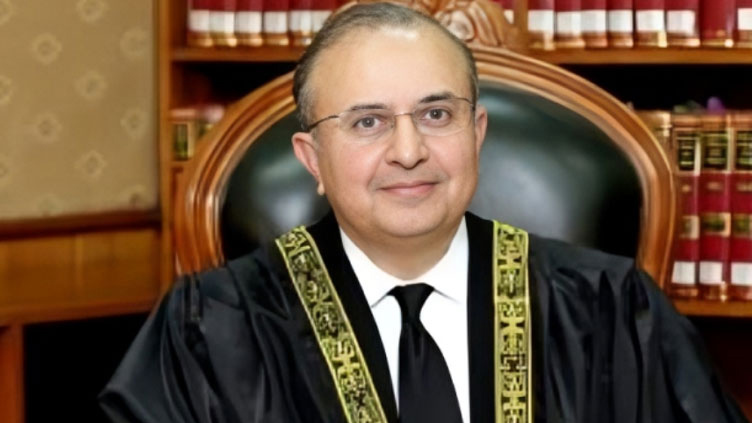Cases potentially unfavorable to govt are reassigned, remarks Justice Shah

Pakistan
Supreme Court summons Attorney General in bench powers case
ISLAMABAD (Dunya News) - The Supreme Court on Tuesday summoned the Attorney General in a contempt of court case related to non-scheduling of the bench powers case.
A two-member bench, led by Justice Mansoor Ali Shah and also having Justice Aqeel Abbasi, conducted the hearing. The Supreme Court registrar appeared before the court.
As the proceedings began, the court inquired from the registrar why the case had not been scheduled despite clear judicial orders.
The registrar replied that the case was intended for a constitutional bench but mistakenly assigned to a regular bench.
Justice Aqeel Abbasi remarked, "If this was a mistake, it must have been going on for some time. How was it realised now?" He added, "The only mistake might have been including me in this bench since I had already heard this case in the high court. I am not sure whether including me was a mistake or something else."
Justice Mansoor Ali Shah questioned how the Practice and Procedure Committee convened a meeting on this matter, asking whether the committee initiated the meeting on its own or upon a request.
The registrar responded that a note was sent to the committee, prompting Justice Mansoor to ask why the note was written when a judicial order was already in place. He demanded to see the note sent to the committee.
Upon reviewing the note, the court found inconsistencies with the registrar's earlier position.
Justice Mansoor remarked, "This note does not mention any acknowledgment of the mistake. Instead, it refers to an order issued on Jan 16, suggesting the creation of a new bench based on that order. However, our order had already specified which bench was to hear the case."
The registrar clarified that the Practice and Procedure Committee had referred the case to the Constitutional Bench Committee, which subsequently scheduled cases related to constitutional amendments for Jan 27. He added that the committee reviewed which cases could be assigned to specific benches.
Justice Mansoor Ali Shah stated, "Perhaps this case was missed by you, but once it reached the bench, the committee's role should have ended. If committees start withdrawing ongoing cases, it undermines judicial independence. This raises concerns about interference, especially when it appears that cases potentially unfavorable to the government are reassigned or delayed. If the case reached us, it must have been part of Allah’s plan."
Justice Aqeel Abbasi added, "At least hearing this case resulted in the scheduling of the constitutional amendment case. Earlier, there was significant outcry that the amendment case was not being scheduled. Why was this tax-related case reassigned? Was there any constitutional amendment to review in this matter?"
Justice Mansoor further commented from where did the Practice and Procedure Committee derive its authority to withdraw cases?
Also Read: Everyone, including chief justice, are bound to follow court orders: Justice Aqeel Abbasi
The registrar replied that if the committee could schedule cases, it could also withdraw them. Justice Mansoor countered, "We will determine whether it has the authority or not. I was invited to attend the committee meeting but informed them that I had already issued a judicial order and therefore my presence was not mandatory. How can an administrative order override a judicial one?"
Justice Aqeel Abbasi noted, "Why was there so much concern over this case that it was removed from the bench altogether?"
The court emphasised that once a case reached the bench, the committee's role ended. Justice Mansoor questioned the rationale for reassigning cases mid-proceedings, stating that it raised doubts about interference with judicial independence.
Subsequently, the court summoned the Attorney General to provide assistance and adjourned the hearing.


